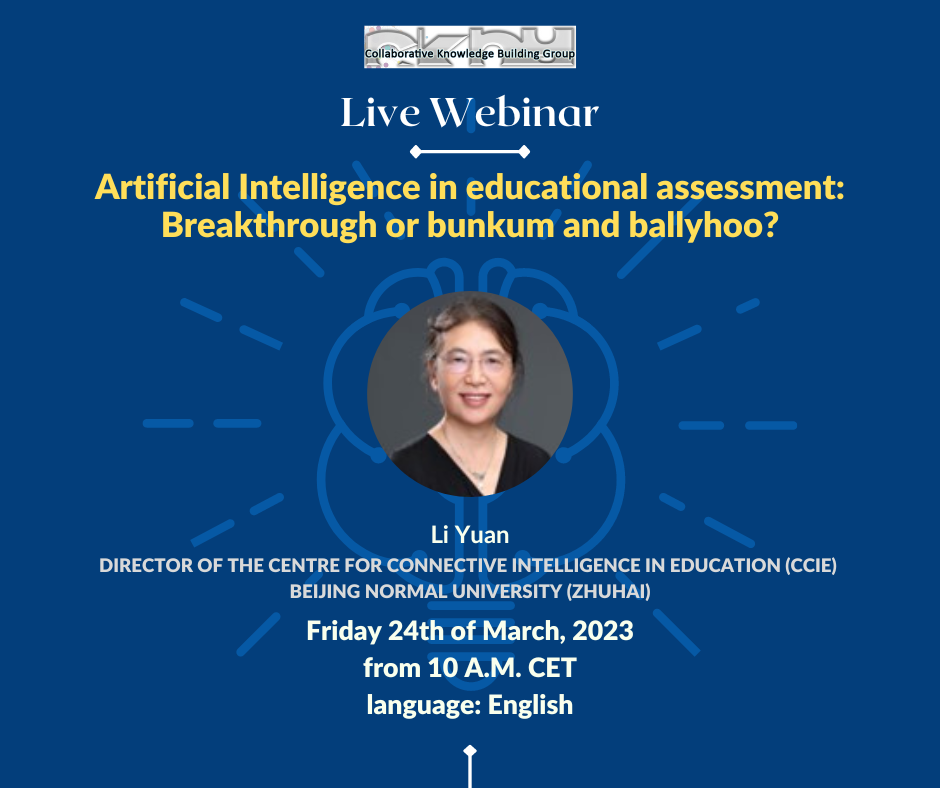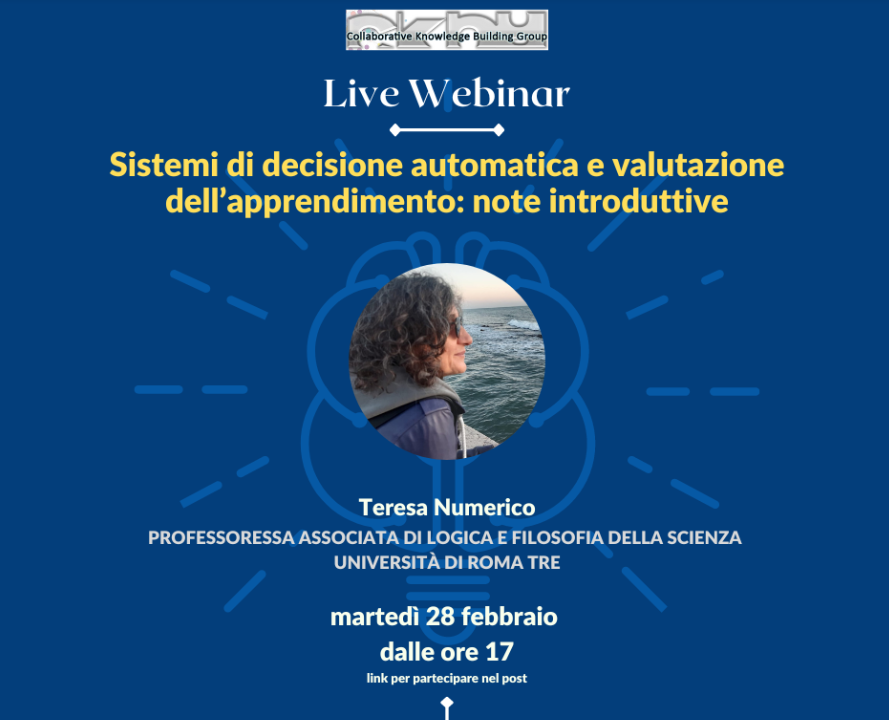The new developments in Artificial Intelligence-related educational assessment are attracting increasing interest as means of improving assessment efficacy and validity, with much attention focusing on the analysis of the large volumes of process data being captured from digital assessment contexts. In evaluating the state of play of Artificial Intelligence in formative and summative educational assessment, in this seminar, we will look at AI and machine learning in Automated Essay Scoring (AES) and Computerised Adaptive Testing (CAT), Learning Analytics and the latest discussions on ChatGPT and education. I will offer a critical perspective on AI and machine learning in assessing higher order learning and address two key questions:
1) Can we address explainability, reliability, bias, accountability and trust issues when developing and using AI in assessment?
2) Given that AI, e.g ChatGPT, is capable of processing information accurately, efficiently, systematically, how should we use AI in assessment for deep engagement and deep learning?
Yuan Li is Professor at the College of Education for the Future at Beijing Normal University Zhuhai Campus and Senior Researcher in AIED at the Digital Education Innovation Lab, University of Cambridge University. For the last 20 years, Professor Yuan has worked in the UK, including University of Cambridge, University of Bolton and University of Belfast and Cetis (a National Innovation Support Centre for UK Higher Education), researching and investigating the impact of technology in education and supporting innovative use of digital technology in teaching and learning. She led and was involved in a number of large technology enhanced learning and educational future projects in Europe, including “TEL-Map”, “LACE” and “RAGE” etc. Her main research interests include: Artificial Intelligence and Future Education; Learning Analytics and Educational Assessment, and Online/Blended Learning.
Chair: Donatella Persico
The topic of Artificial Intelligence and its use in educational practices is animating public and scientific debate.
However, what is meant by the term AI?
What applications might it have in learning and its assessment?
These questions will guide the live webinar “Automated Decision Systems and Learning Assessment: introductory notes” by Teresa Numerico, associate professor of Logic and Philosophy of Science at the University of Roma Tre. She works on the philosophy of technology, politics of artificial intelligence, and new epistemology of human and social sciences in contact with digital transformation. She has published articles in several international journals. Her books include Alan Turing and machine intelligence (FrancoAngeli, 2005), Web Dragons (with (M. Gori and I. Witten; Morgan Kaufmann, 2007), The digital humanist (with D. Fiormonte and F. Tomasi; Il Mulino, 2010; revised Engl. transl., The digital humanist; Punctum Books, 2016) and Big Data and Algorithms (Carocci, 2021).

